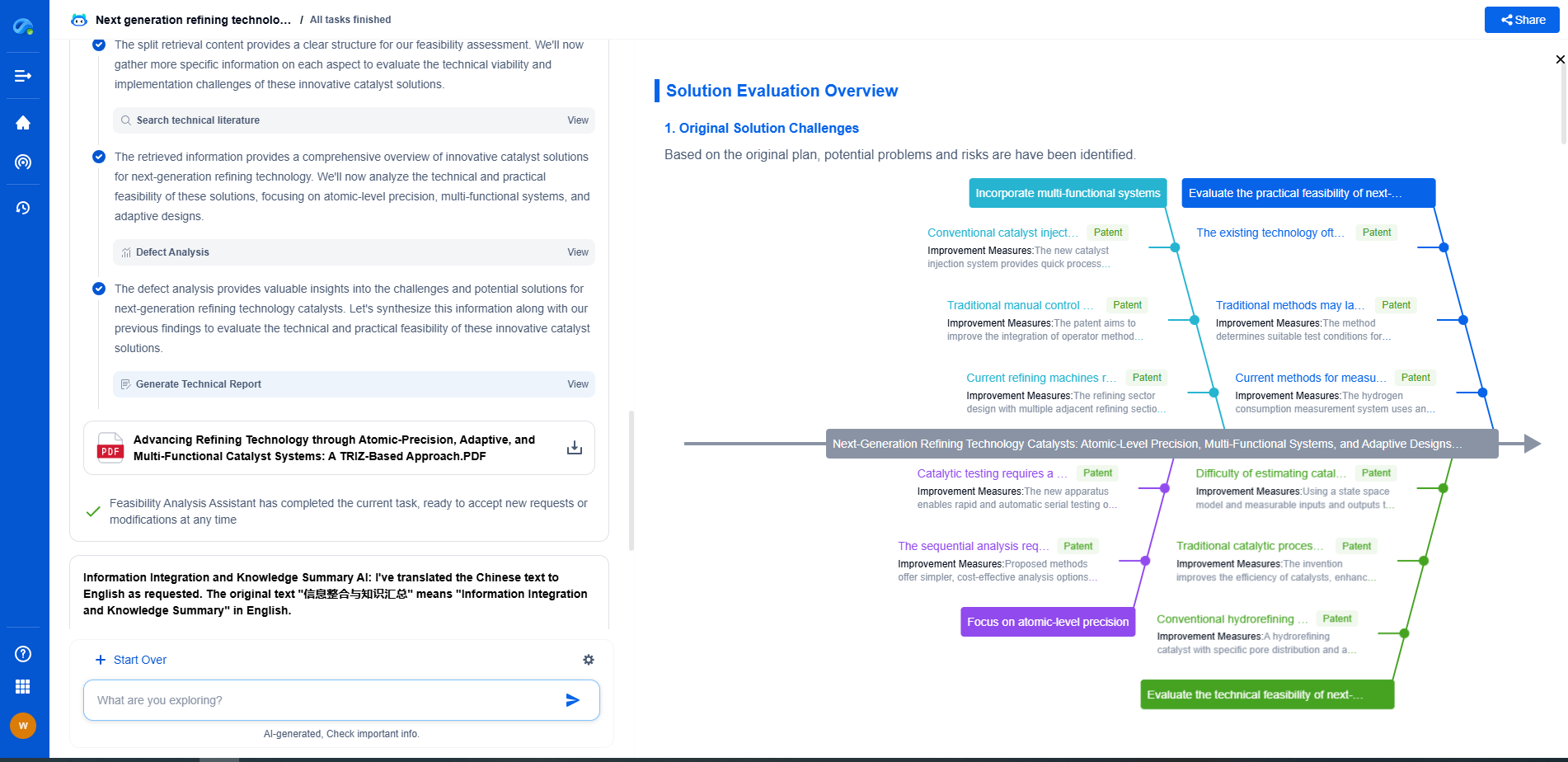MIL-STD-202 Explained: Military-Grade Capacitor Testing Requirements
JUL 9, 2025 |
When it comes to military applications, reliability and durability are non-negotiable. Electronic components, especially capacitors, play a critical role in ensuring that military equipment functions correctly in extreme conditions. This is where MIL-STD-202 comes into play, setting the benchmark for testing electronic components to ensure they meet stringent military standards. Let's delve deeper into what MIL-STD-202 entails and how it applies to capacitor testing.
The Significance of MIL-STD-202 in Military Applications
MIL-STD-202 is a comprehensive standard developed by the United States Department of Defense. It outlines test methods and procedures for evaluating the environmental and physical characteristics of electronic components used in military systems. The main aim is to ensure that these components can withstand the rigors of military operations, including exposure to harsh environments and mechanical stress.
For capacitors, this means undergoing rigorous testing to validate their performance and reliability. Capacitors are essential in regulating power supply, filtering signals, and storing energy, making their reliability crucial in the battlefield.
Key Test Methods for Capacitors Under MIL-STD-202
1. Environmental Testing
Environmental tests under MIL-STD-202 evaluate how capacitors perform under various climatic conditions. These tests include temperature cycling, humidity resistance, and moisture exposure. Capacitors must maintain their functionality across a wide temperature range and in humid environments without degradation.
2. Mechanical Testing
Mechanical tests determine the capacitors' durability against physical stress, such as shock and vibration. These tests simulate the conditions capacitors might encounter during transportation or when mounted on military equipment in action. The goal is to ensure that capacitors do not suffer from mechanical failures that could lead to system breakdowns.
3. Electrical Testing
Electrical tests focus on assessing the capacitors' electrical properties, such as capacitance, dissipation factor, and insulation resistance. These tests ensure that the capacitors function correctly and within specified parameters. Electrical testing is critical because even minor deviations can lead to significant issues in complex military systems.
4. Life Testing
Life testing evaluates the longevity and reliability of capacitors over extended periods. This involves subjecting capacitors to accelerated aging processes to predict their lifespan and failure rates. By understanding how capacitors age, manufacturers can improve designs and materials to enhance their durability.
The Role of MIL-STD-202 in Quality Assurance
The rigorous testing mandated by MIL-STD-202 plays a pivotal role in quality assurance for military-grade capacitors. By adhering to this standard, manufacturers demonstrate their commitment to producing components that meet the highest levels of performance and reliability. This is crucial not only for safety and mission success but also for maintaining the integrity of military operations.
Challenges and Considerations in MIL-STD-202 Compliance
While MIL-STD-202 sets a high standard for capacitor testing, achieving compliance can be challenging. Manufacturers must invest in sophisticated testing facilities and equipment to conduct the required assessments. Additionally, they need skilled personnel to interpret test results and implement necessary improvements.
Another consideration is the balance between meeting military requirements and maintaining cost-effectiveness. While the testing is extensive, manufacturers must ensure that the costs do not make the capacitors prohibitively expensive for military procurement.
Conclusion: The Future of Military-Grade Capacitor Testing
As military technology continues to evolve, so too will the requirements and standards for electronic components. MIL-STD-202 will likely undergo updates to reflect new challenges and advancements in technology. For manufacturers, staying ahead of these changes is crucial to maintaining compliance and delivering reliable components for military applications.
In summary, MIL-STD-202 is not just a standard but a testament to the rigorous testing and high expectations placed on military-grade capacitors. By understanding and adhering to these testing requirements, manufacturers ensure that their products can withstand the demanding environments of military operations, ultimately contributing to the success and safety of military missions.
Looking to accelerate your capacitor innovation pipeline?
As capacitor technologies evolve—from miniaturized MLCCs for smartphones to grid-scale energy storage devices—so must the way your team accesses critical knowledge.
Patsnap Eureka, our intelligent AI assistant built for R&D professionals in high-tech sectors, empowers you with real-time expert-level analysis, technology roadmap exploration, and strategic mapping of core patents—all within a seamless, user-friendly interface.
Try Patsnap Eureka now and discover a faster, smarter way to research and innovate in capacitor technology.
- R&D
- Intellectual Property
- Life Sciences
- Materials
- Tech Scout
- Unparalleled Data Quality
- Higher Quality Content
- 60% Fewer Hallucinations
Browse by: Latest US Patents, China's latest patents, Technical Efficacy Thesaurus, Application Domain, Technology Topic, Popular Technical Reports.
© 2025 PatSnap. All rights reserved.Legal|Privacy policy|Modern Slavery Act Transparency Statement|Sitemap|About US| Contact US: help@patsnap.com

